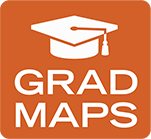| |
Feb 02, 2026
|
|
|
|
|
2022-23 Catalog ARCHIVED CATALOG: Content may no longer be accurate.
Economics, Business (BS)
|
|
- Program Prerequisites: Most business and economics courses with numbers above 3000 require formal admission to the John B. Goddard School of Business & Economics and completion of ACTG 2010 , ACTG 2020 , BSAD 4620 , ECON 2010 , ECON 2020 , MIS 2010 , and QUAN 2600 . These seven courses are referred to collectively as “Business Foundations.” (Refer to the John B. Goddard School of Business & Economics Requirements .)
- Minor: None required.
- Grade Requirements: Candidates for the bachelor of science degree must complete all prerequisite and required business and economics courses with a grade of “C-” or higher. In addition, the cumulative Business Foundations GPA, Goddard School (major) GPA, and the overall university GPA must be 2.5 or higher.
- Credit Hour Requirements: A total of 120 credit hours is required for graduation. A total of 40 upper division credit hours are required (courses numbered 3000 and above).
- Residency Requirement: Students must satisfactorily complete 50 percent of the total required course work and 60 percent of the upper-division requirements from the Goddard School. Furthermore, any transferred credit must be approved prior to beginning the program of study. Refer to John B. Goddard School of Business & Economics for credit policy and transfer credit policy.
- Website: https://weber.edu/goddard/Business_Economics.html
- Program Code: Business Economics (4017BS)
- CIPC: 520601
Advisement
Advisement is strongly encouraged for all Goddard School majors and minors. See more information on available advising resources in the John B. Goddard School of Business & Economics section of this catalog.
 Use Grad MAPs to plan your degree Use Grad MAPs to plan your degree
General Education
Refer to Degree Requirements for the University Bachelor of Science requirements. The following courses required for the Business Economics major (BS) will also satisfy general education requirements: ENGL 2010 or ENGL 2015 (Composition); MATH 1050 or MATH 1090 (Quantitative Literacy); ECON 2010 or ECON 2020 (Social Science); ECON 1740 is recommended to fulfill the Senate Bill Requirement in American Institutions.
Program Learning Outcomes
- Economics majors will be numerically literate, and possess strong written and oral communication skills.
- All Economics majors should be able to use statistical methods for problem solving (e.g., hypothesis testing, regression analysis).
- All Economics majors should be able to use the concepts of supply and demand to analyze current economic issues.
- All Economics majors should be able to use the aggregate demand/aggregate supply framework.
- All Economics majors should be able to identify the benefits and costs of a global economy.
|
John B. Goddard School of Business & Economics Requirements
John B. Goddard School of Business & Economics Curriculum
The program of study within the John B. Goddard School of Business & Economics is designed to assist the students from admission to career placement. All degree programs within the Goddard School follow the same general pattern which is composed of five required elements: (1) Liberal Support Curriculum, (2) Business Foundations, (3) Admission and Major Declaration, (4) Business Core, and (5) Major Discipline. 1. Liberal Support Curriculum (6-7 credit hours)
The Liberal Support Curriculum consists of courses outside the John B. Goddard School of Business & Economics which provide critical skills and information useful to all business students. Students should complete the Liberal Support Curriculum as soon as possible because the knowledge attained in these courses will be used throughout the business curriculum. 2. Business Foundations Curriculum (17 credit hours)
Each major discipline within the Goddard School designates different course work. Consult the Degrees/Programs listing for the Major course work required. Generally, students should begin taking courses within their major area before completing all of the courses in the Business Core. Refer to department degree maps for assistance in course sequencing. The Business Foundations Curriculum provides the base for all business and economic degree programs and should be completed early in the student’s academic studies. To satisfy the Business Foundations requirement, courses must be completed with a grade of “C-” or higher. However, admittance to the Goddard School requires a cumulative GPA of 2.5 or higher for the seven Business Foundation courses. 3. Admissions Process (0 credit hours)
Students intending to pursue a Bachelor of Science or Associate of Science from the John B. Goddard School of Business & Economics must take the appropriate admissions course listed below. Students wishing to minor in Accounting or Economics must also take the appropriate admissions course. Other minors and certificates do not require any admissions course. Students should register for this course concurrent with (same semester as) or after their last required Business Foundations Course. 4. Business Core (33-34 credit hours)
The Business Core exposes students to the traditional areas of business and provides the competencies needed to analyze problems and interact with individuals from different units of an organization. Everyone working in business needs a knowledge of these areas. Students should take course work within the Business Core as they are completing the courses within the Major Discipline. Many of the courses in the Business Core are prerequisites for other classes. Keeping this in mind and using department degree maps will assist students in course sequencing. One of the following Communication courses:
One of the following International courses:
5. Major Course Requirements for BS Degree (24-25 credit hours)
Major Courses Required (12-13 credit hours)
Note:
*ECON 4970 and 4980 will complete the communication requirement as part of the business core as well as the required business course for the Business Economics major. Elective Courses (12 credit hours)
Select from the following: |
|
|